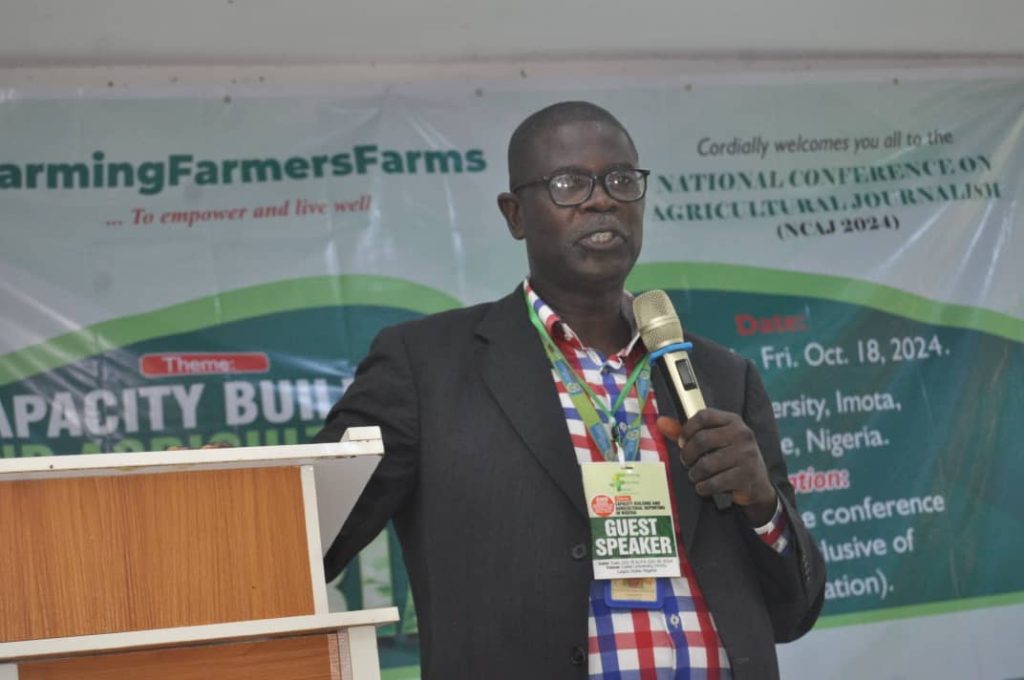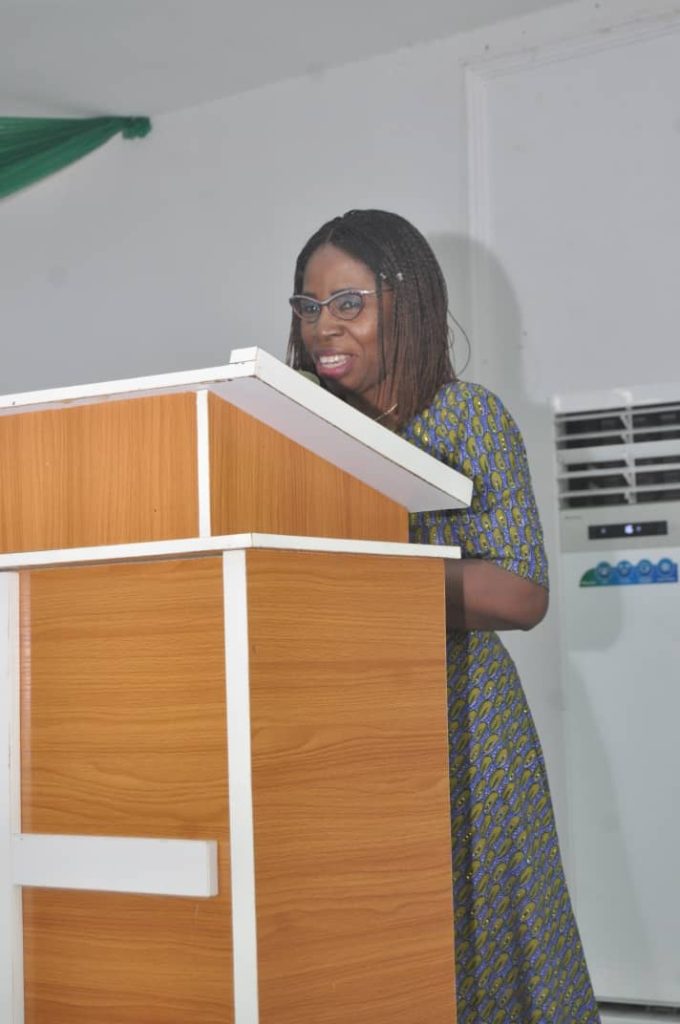The Director of the Institute of Continuing Education (ICE) at the University of Lagos (UNILAG), Prof. Abigail Ogwezzy-Ndisika, has emphasised the vital role of agricultural journalism in shaping public perception of agriculture and food security, as well as bridging the information gap between farmers, policy makers, and consumers.
Speaking at the 2nd National Conference on Agricultural Journalism (NCAJ 2024), with the theme: ‘Capacity Building and Agricultural Reporting in Nigeria’, organised by FarmingFarmersFarms, which was held at the Caleb University, Imota, Lagos State, Nigeria, she highlighted the importance of capacity building and agricultural reporting in Nigeria. Ogwezzy-Ndisika, while delivering her rich keynote lecture on ‘Cultivating Knowledge in the Agricultural Sector’, said capacity building and agricultural reporting in Nigeria empower journalists with requisite skills and knowledge for accurate reporting and in fostering collaboration among stakeholders in agriculture and journalism.
The Professor revealed that agricultural journalism enhances access to information about agricultural practices and innovation, advocates for policy changes and influences public understanding and adoption of new technologies. Ogwezzy-Ndisika, who is also the Technical Adviser for the Collaborative Media Engagement for Development Inclusivity and Accountability (CMEDIA) project, emphasised that poor capacity and lack of specialised training, legal risks, and resource constraints are some of the challenges facing agricultural journalism in the country, stressing that the conference would upscale knowledge in modern agricultural reporting, equip journalists with skills for unbiased coverage, create legal awareness to navigate legal challenges in the bid to promote research and development that is focused on food security in Nigeria.
The keynote speaker further made a case for knowledge dissemination in driving agricultural development, stressing that “spreading knowledge is key to unlocking the sector’s full potential”. She highlighted the importance of embracing digital platforms in agricultural information sharing, noting that “digital tools can bridge the knowledge gap and enhance accessibility”. The communication expert pointed out the importance of community engagement, as a catalyst for behavioural change, saying that “meaningful engagement with local communities is crucial for addressing pressing agricultural issues”.

Meanwhile, the Acting Head, Department of Mass Communication, Caleb University, Dr. Solomon Oyeleye, during his presentation, attributed some of the challenges facing agriculture reporting in Nigeria to lack of interest among media leaders and gatekeepers based on economies of scale, absence of network of dedicated reporters in the agriculture sector and skill gap among media workers in reporting agriculture. Oyeleye advocated for data-driven journalism in agricultural reporting because data helps to produce fact-based reporting, verify claims and statistics, thereby reducing reliance on subjective evidence.
Meanwhile, the Vice-Chancellor of Caleb University, Prof. Nosa Owens-Ibie disclosed that Nigerians needed to be equipped with agricultural information to boost agricultural output, noting that without agriculture, there is no life. “Agriculture is life and the way to go. Nigerians should think agriculture for the country to experience change economically”, he stated. In her opening remarks, the Chairman, Planning Committee for NCAJ 2024, Prof. Adesola Ajayi, reiterated that a lot had been achieved with agricultural journalism with publications geared towards solving challenges facing Nigeria and other parts of the world. She stressed that the future of Nigeria and that of the continent is in their hands, noting that the responsibility is great, but that solutions would come sooner than expected.




2 Comments
Effective communication through Agricultural Journalism will definitely bring progress to the Agricultural sector.
Before now, not much information is heard in the Agric sector. Thanks to Farming Farmers Farm, things have changed for good